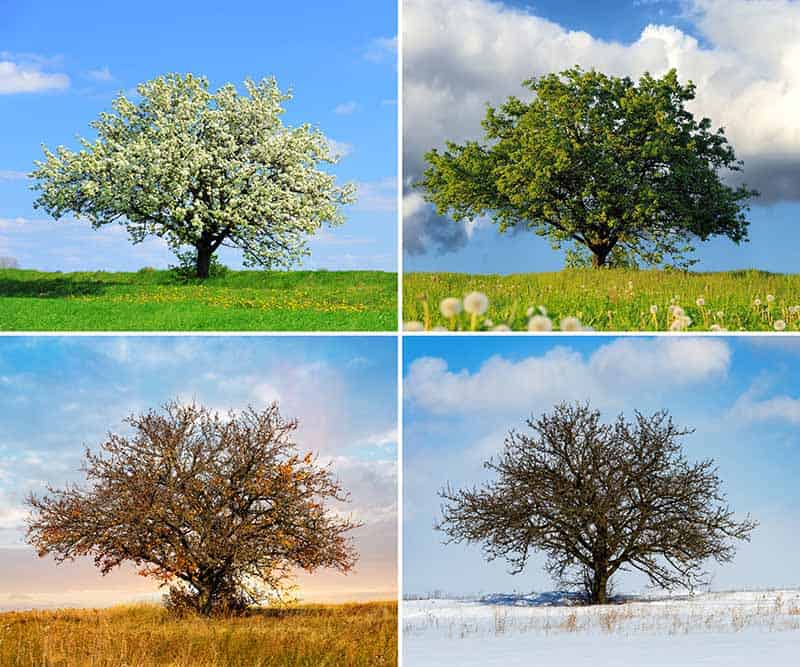Did you know that our brain is affected by seasonal changes? According to Discover Magazine, studies of the brain have shown real physical changes to our brain during different seasons.
Some of those changes are due to the differences in weather or temperature and how we react to change, and some are due to our memories (how we remember the seasons). The good news for people who don’t like seasonal change is that we know it is coming, and we can prepare. Preparation is very important for most of us- we like some surprises but not too many.
Besides bringing us change, seasonal differences bring us familiarity. For many people, seasons have specific rituals that we attach to them, which can foster feelings of nostalgia and take us back to the emotions of years gone by. Reflection on memories is good for our brain-it can tie us to the present.
Besides the temperature and the visual changes we see with our eyes, seasonal changes affect our lifestyles. If it’s too hot or cold, we may decide we don’t want to go for our daily walk. An exercise or fitness buddy can help us stay on course so we don’t miss exercise or the visual experience of seeing falling leaves or blooming flowers.

So what can we do about these seasonal changes? Every season has its own energy. A recent article in Aspire Magazine tells us that we need to be in synch with nature and the uniqueness of each season. For example, spring is a time of new life, flowers blooming, and trees growing. Spring is a time of creativity, inspiration, and generating new thoughts. Winter is a season filled with familiarity. Family traditions and celebrations help us pull the past into the present. We should also seek out things we haven’t experienced before- new experiences and memories are good for our brains.
Living seasonally is another way that we can embrace and celebrate each season. As seasons change, so can our eating habits, lifestyle, and physical activity. Finding ways to celebrate each season can add energy to our daily lives. Here are a few ideas:
- If the weather permits, spend time outdoors, attend a local farmer’s market, or walk through a garden center or pumpkin patch.
- Switch to seasonal music.
- Recall and celebrate seasonal family traditions.
- Introduce new seasonal traditions, walking through the pumpkin patch, or attending a winter music concert.
Almanac suggests that we try to live by the natural seasons instead of a clock or calendar. This would put us more in tune with the age-old rhythms of the earth. Their research shows that we would be happier and have more productive lives.
What do the seasons teach us about our brains?
- We should acknowledge and accept change-it can help us be prepared for changes.
- Familiarity is a good thing- it helps us celebrate memories and traditions.
- We should challenge ourselves to learn and experience new things, be bold, and attend new events.
